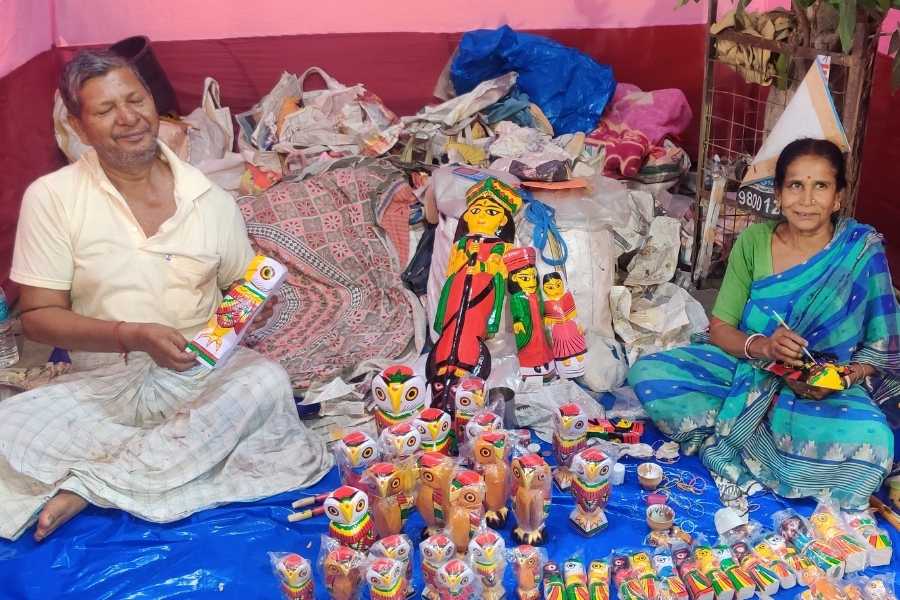The free trade agreement (FTA) between India and the UK is paving the way for enhanced exports of Indian goods. Four iconic products from West Bengal are on their way to becoming global favourites. Reduced tariffs and smoother customs processes will make it easier for Bengal’s rich artisanal legacy to find its way to UK markets. Three of these products also carry Geographical Indication (GI) tags, which will now receive better recognition and protection under the agreement.
Baluchari saris
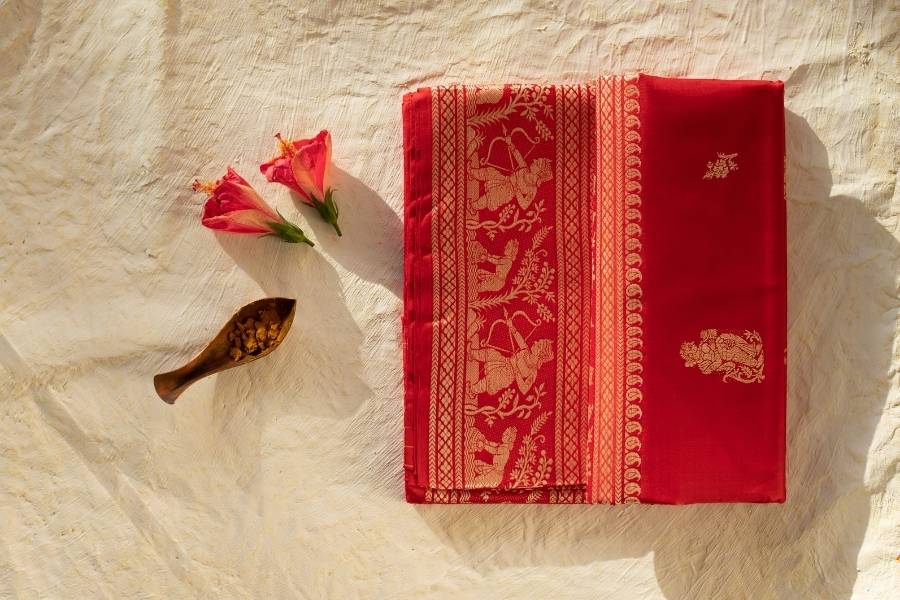
Shutterstock
Woven in the village of Bishnupur in Bankura district, Baluchari saris are a timeless symbol of Bengal’s textile heritage. Known for their intricate motifs depicting scenes from epics like the Ramayana and Mahabharata, these GI-tagged silk saris are handwoven over weeks by skilled artisans. With the FTA reducing export costs, the weavers’ cooperative societies stand to benefit from global exposure, fairer prices and greater demand. The GI tag for Baluchari saris was registered in 2009, helping preserve the identity of this centuries-old art.
Darjeeling tea
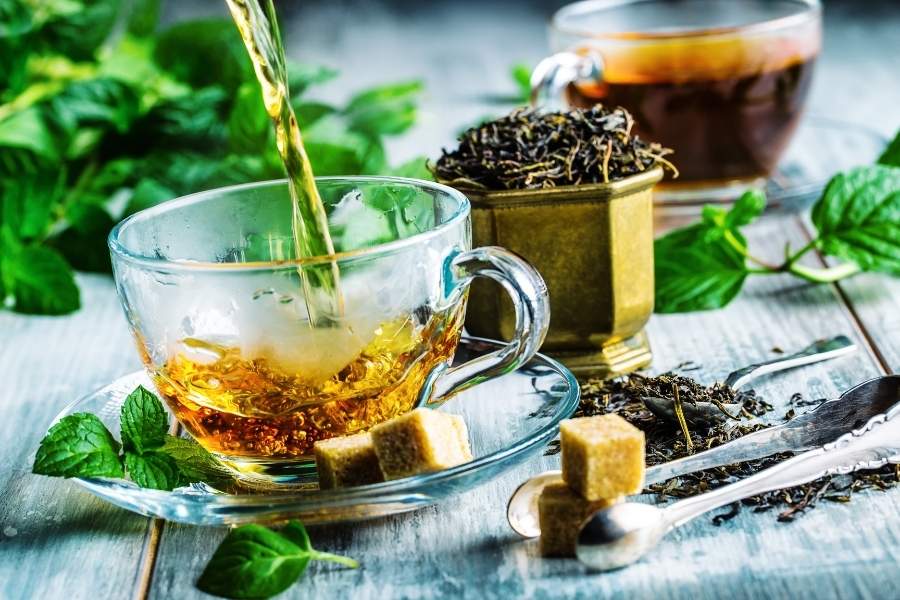
Shutterstock
Often called the Champagne of teas, Darjeeling tea is internationally recognised for its unique muscatel flavour. It was the first Indian product to receive the GI tag in 2004. The FTA will open new doors for small tea growers and estate owners by reducing tariffs that have often made the tea expensive in international markets. Now, Darjeeling tea can reach more consumers across the UK, offering better returns to the planters and preserving this prized heritage.
Natungram dolls
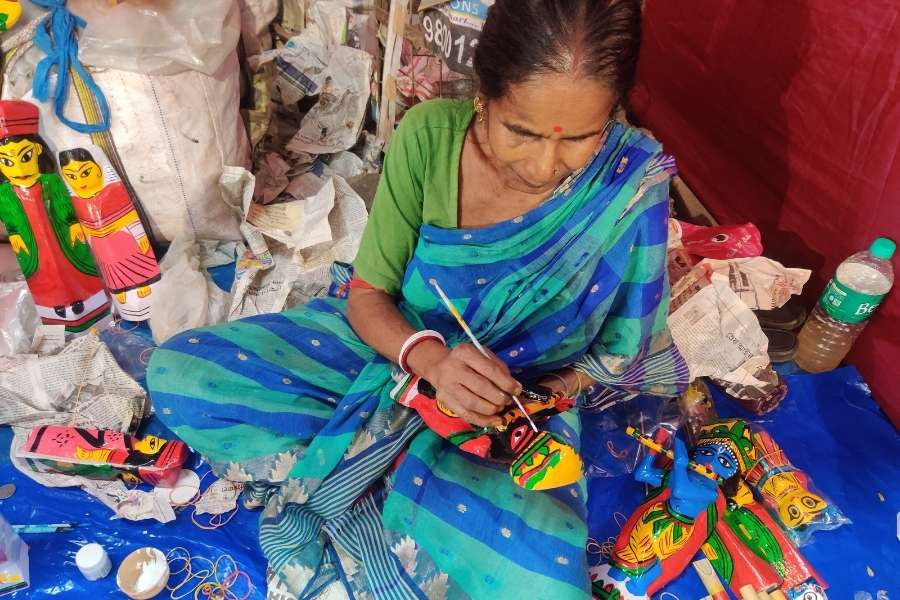
Handcrafted wooden dolls from Natungram, in Burdwan district, are colourful expressions of Bengal’s folk art practices. Traditionally carved by the Sutradhar community, these dolls, especially the iconic owl figures, symbolise goddess Lakshmi. Though the craft has struggled in recent years, the FTA promises access to international craft markets — where such sustainable and traditional art is highly valued. The dolls haven’t received their GI tag yet.
Santiniketan leather goods
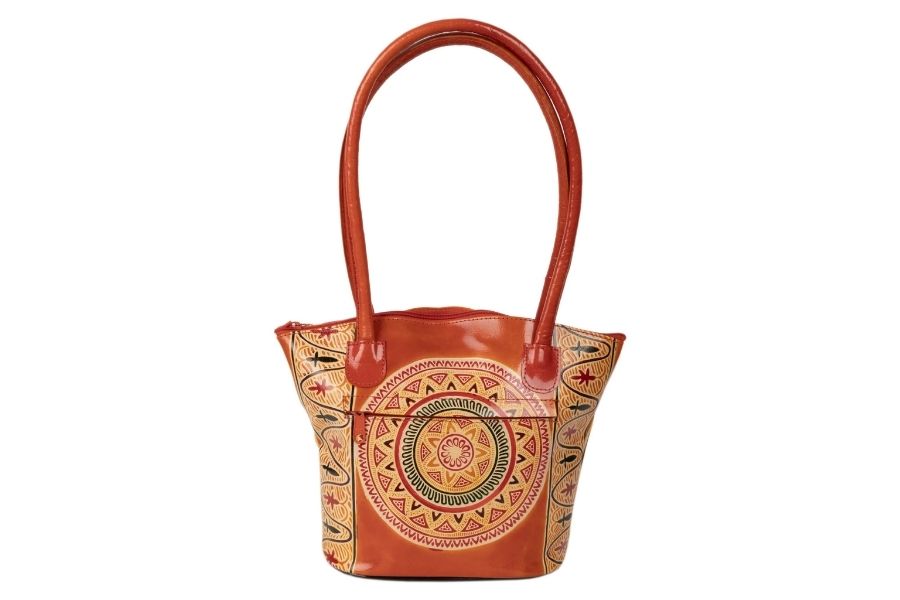
Inspired by Rabindranath Tagore’s vision of blending art with utility, Santiniketan leather craft emerged in Bolpur. These bags, wallets and belts are hand-embossed with folk and tribal motifs, dyed in earthy tones and crafted using vegetable tanning methods. With GI status granted in 2007, this craft supports many artisan families in the region. The FTA will give these stylish and eco-conscious accessories a fresh lease of life.
